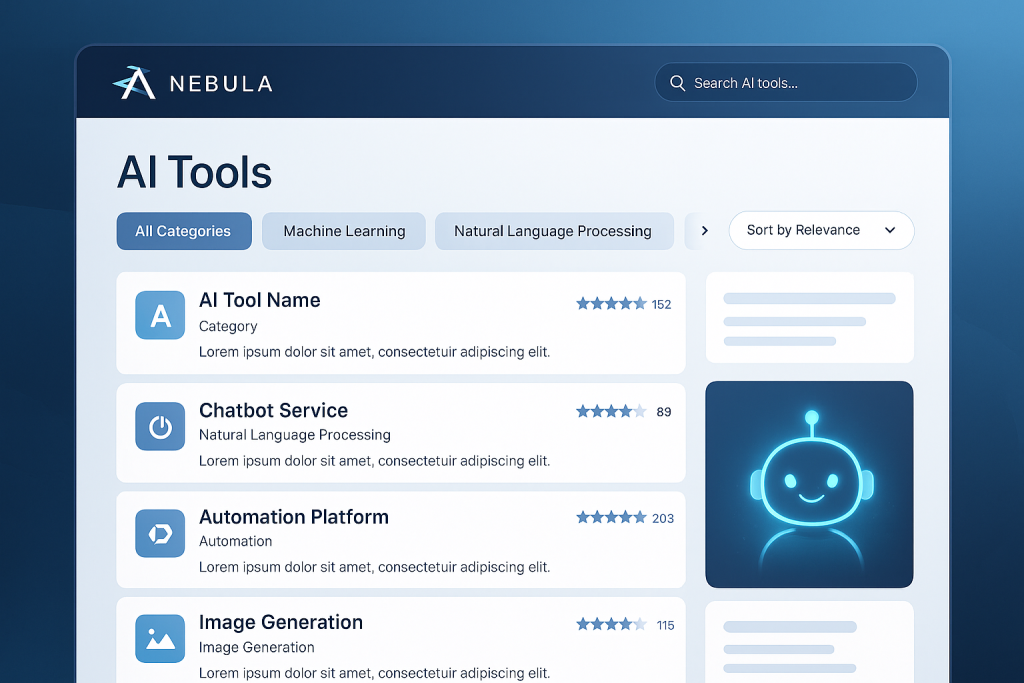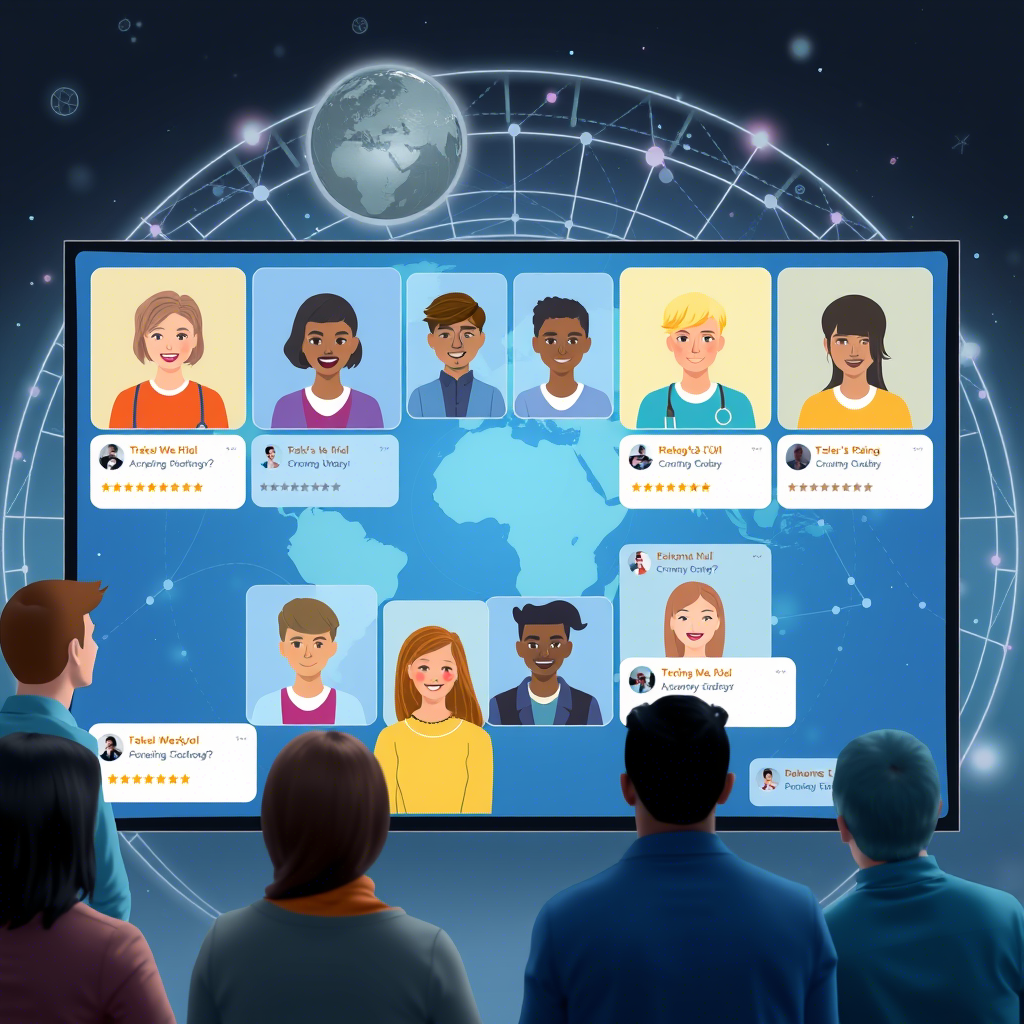In an era when artificial intelligence is woven into the fabric of daily life, choosing the right tool from a staggering 32,000+ AI solutions can feel like searching for a needle in a digital haystack. Addressing this very dilemma is Nebula, a sleek and intuitive AI tool discovery platform launched on June 12, 2025, by 21-year-old tech entrepreneur Adrian Nunez. With a mission to streamline access to AI tools for businesses, developers, and everyday users alike, Nebula is fast emerging as the central hub for navigating the increasingly crowded AI ecosystem.
The Problem: Too Many Choices, Not Enough Guidance
AI is no longer a niche frontier—it’s a mainstream necessity. More than 400 million people interact with AI tools daily, from resume builders and coding assistants to marketing platforms and image generators. And yet, the paradox of choice often hampers innovation. As generative AI spending is projected to hit $644 billion in 2025 (a 76% jump from the previous year), many users feel overwhelmed, unsure where to start or how to choose the right tool for their needs.

This is where Nebula steps in, not as another tool, but as a meta-tool—a platform designed to help users discover, compare, and select from the vast universe of AI-powered solutions. “People are paralyzed by options,” said Nunez in an exclusive interview. “Nebula exists so users can focus on solving real-world problems, not wasting time figuring out which tool they even need.”
The Vision: Centralizing AI Discovery
For Adrian Nunez, Nebula is more than a business—it’s a response to a gap he personally experienced while navigating the AI landscape. A digital native from Gen-Z, Nunez saw firsthand how fragmented the ecosystem had become. His response was to build a centralized, user-friendly platform that makes AI accessible to all, regardless of budget or tech know-how.
At the heart of Nebula is its gigantic database of over 32,000 AI tools. Each tool is categorized by function—ranging from NLP and image generation to enterprise-level automation—making the discovery process both comprehensive and organized. But the platform isn’t just about quantity. Nebula stands out for its quality of curation, made possible through intelligent filtering and real-time data updates.
Key Features Setting Nebula Apart
- Verified Reviews for Transparency: Nebula integrates user reviews from trusted sources such as G2 and Trustpilot, giving potential users a credible way to assess a tool’s effectiveness. It’s a critical move in a space where many tools rely on flashy marketing rather than actual user value.
- AI-Powered Chatbot Assistance: One of the platform’s most innovative features is a personalized chatbot that helps users discover the best tools based on their goals, skill level, and budget. Whether you’re a developer, startup founder, freelancer, or student, Nebula tailors recommendations just for you.
- Completely Free to Use: Unlike many competitors that charge subscription fees or lock features behind paywalls, Nebula is 100% free. The platform earns through affiliate partnerships—ensuring that its financial success is tied to how well it connects users to the right tools.
- Community First: Even before launch, Nebula built momentum with a YouTube channel that attracted over 6,000 subscribers and videos averaging 30,000+ views. This grassroots traction highlights the platform’s potential to grow into a trusted community space for AI enthusiasts and professionals alike.

Filling a Critical Infrastructure Gap
Nebula’s debut is timely. As tech giants like Microsoft, Meta, and Google pour billions into building AI infrastructure, small businesses and independent creators often find themselves on the margins, without the time or expertise to sift through thousands of solutions. That’s where Nebula’s neutral, user-first approach offers a breath of fresh air.
“Nebula is not just another directory,” Nunez explains. “It’s the missing infrastructure that democratizes AI.” By reducing friction in tool discovery, Nebula helps accelerate AI adoption across industries—from education and healthcare to content creation and customer service.
Challenges on the Horizon
While the buzz around Nebula is undeniable, it won’t be a smooth ride. The platform enters a competitive space already occupied by platforms like Futurepedia, There’s An AI For That, and various workflow-focused tools like Zapier. Moreover, the rapid evolution of the AI market demands that Nebula’s backend remain agile, with frequent updates and smart curation.
Yet, its community-centric, freemium model gives it an edge. Instead of racing to add premium features, Nebula focuses on user satisfaction, knowing that its success lies in how well it connects people with useful, effective AI solutions.
Industry Applause and User Feedback
Early industry reactions have been positive. “The AI tool ecosystem is a jungle,” said Medium tech columnist Palash Jain. “Nebula is the compass that helps you find your way.” Social media is also abuzz with praise, with users on platforms like X (formerly Twitter) praising its interface and helpful chatbot.
Some are already calling Nebula the “Google of AI tools,” though Nunez is quick to distance his vision from search alone. “Search is reactive. Nebula is proactive—it guides, suggests, and simplifies.”

What’s Next for Nebula?
The roadmap ahead for Nebula is ambitious. Plans include enterprise-grade analytics, deeper integration with AI development platforms, and strategic partnerships with major AI companies. Nunez hints at adding features that allow users to track tool performance, compare cost-efficiency, and even build AI workflows within Nebula.
Yet, Nunez insists that the core mission will remain unchanged: accessibility and transparency. “AI shouldn’t be a privilege,” he says. “Whether you’re a college student working on a thesis or a small business trying to scale, Nebula should be your launchpad.”
A Gen-Z Legacy in the Making
What sets this story apart is not just the technology—but the person behind it. Adrian Nunez, at only 21, represents a new generation of entrepreneurs who are building with purpose, not just profit. His vision isn’t to compete with the big players—it’s to connect the dots between them and the people who need their tools most.
“I didn’t create an AI tool,” Nunez reflects. “I created a bridge. And right now, the world needs that bridge more than ever.”

With AI revolutionizing every facet of modern life, platforms like Nebula are becoming essential to manage the chaos of choice. By offering a centralized, transparent, and user-friendly discovery experience, Nebula has the potential to transform how the world interacts with AI. And as it continues to evolve, it’s not just helping users catch up with the AI revolution—it’s helping shape its very future.
Nebula has arrived—and it’s not just another star in the AI sky. It’s the constellation that helps you navigate it.
Copyrights: Dhaka ai



